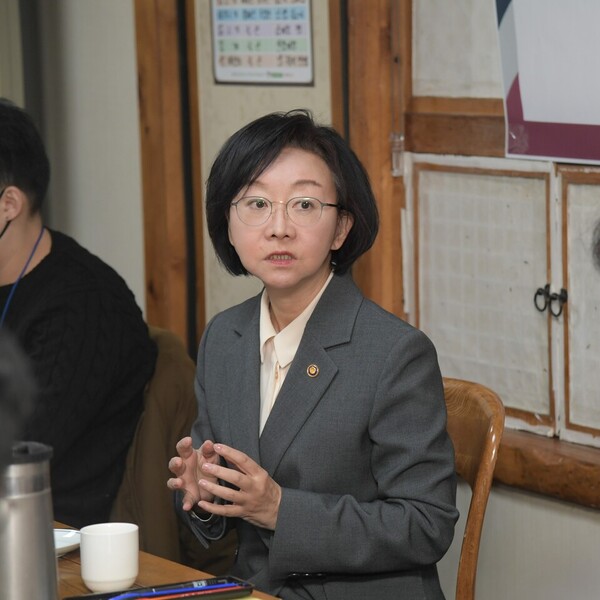The Ministry of Food and Drug Safety (MFDS) said that it would step up efforts to monitor the misuse of medical narcotics, rehabilitate drug addiction, and strengthen prevention education next year.

"This year, we focused on laying the legal foundation and securing the budget to prevent medical shopping and promote addiction rehabilitation. Next year, we will implement them in earnest,” Minister of Food and Drug Safety Oh Yu-kyoung said at a meeting with reporters last Friday.
Earlier in the day, the ministry put an amendment to the Enforcement Decree of the Act on the Control of Narcotic Drugs to a public review. The amendment requires doctors to check patients' past medication records when prescribing fentanyl.
The ministry defined fentanyl, a narcotic painkiller with a serious abuse problem, and similar drugs in solid form (tablets and others) and external form, including deodorants, as the targets of the amended rule.
According to the amendment, doctors will be fined if they repeatedly fail to check a patient's medication history. After the first warning, a fine of 300,000 won ($230) will be imposed for the second offense and 1 million won for the third.
However, exceptions have been made so that doctors do not have to check a patient's history of medical narcotics use in cases of urgent medical emergencies. Exceptions include prescribing to a patient in an intensive care unit or recovery room immediately after surgery and prescribing to a cancer patient for pain relief.
"Considering the difficulties in the medical field, we decided to make fentanyl, which is the most problematic drug, a mandatory target for confirmation after consulting with the Korean Medical Association (KMA). This is a step forward in terms of monitoring medical drug abuse," Minister Oh said. "And we are grateful to the association for their proactive acceptance."
Oh added that the government would expand the list of mandatory patient medication history verification targets in stages and closely communicate with KMA during the process.
Oh cited opening a youth-focused drug addiction rehabilitation center in Chungcheong provinces as one of the ministry’s achievements this year.
"In 2018, the largest number of drug offenders were in their 40s, but recently, the age group has declined to 20s and younger, so it is important to rehabilitate youth drug addiction," Oh said. "Next year, we will open 14 rehabilitation centers at once. It will be the first year of drug addiction rehabilitation."
Oh also revealed her goal to make Korea a drug-monitoring powerhouse by exporting a regulatory regime.
"During my trip to Europe this year, I met with the U.N. Office on Drugs and Crime (U.N. ODC), which has a global database of new drugs, and discussed cooperation,” Oh said. “Our integrated drug management system will likely be introduced in Thailand. It is expected to be the first export case of the regulatory regime."
Next year, the ministry plans to upgrade the integrated narcotics management system by utilizing artificial intelligence technology, she added.
Related articles
- 1.74 million psychotropic drugs disappeared from closed clinics: BAI audit
- [Editor’s Column] 1 in 10 Korean teenagers have used fentanyl? No way.
- Doctor gets 2 years in prison for prescribing 4,826 fentanyl patches to one patient
- MFDS set to control narcotics efficiently through risk management plan

